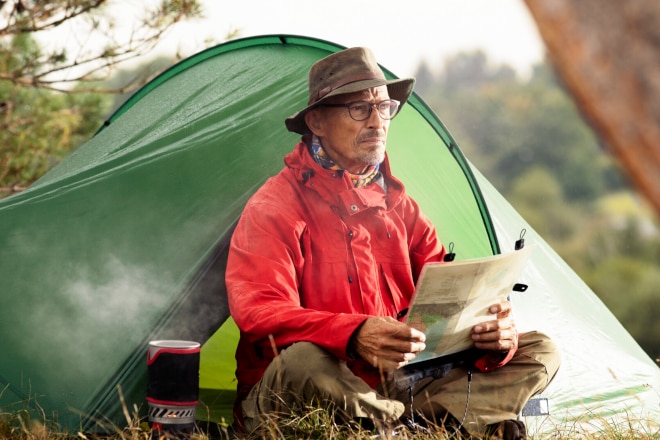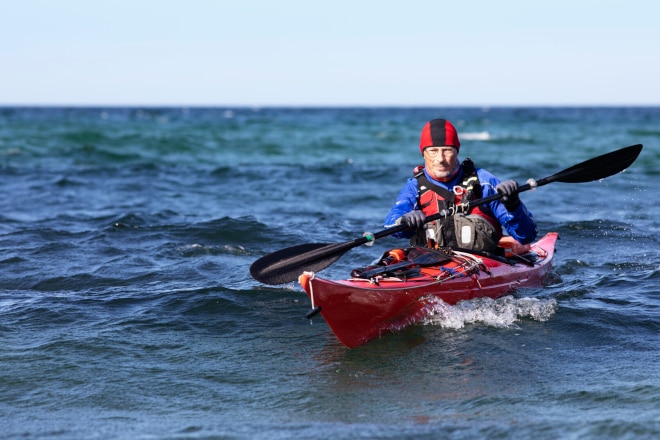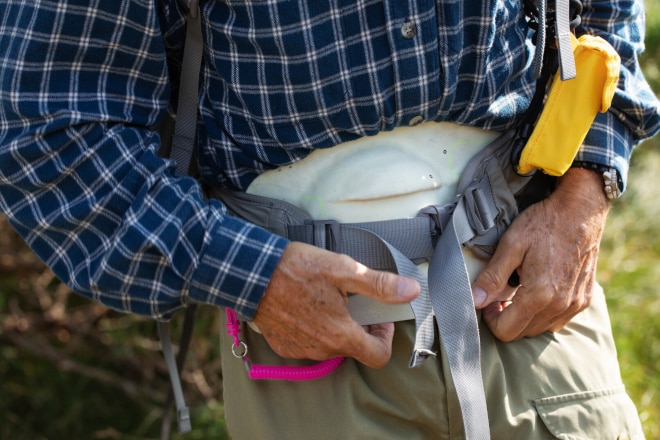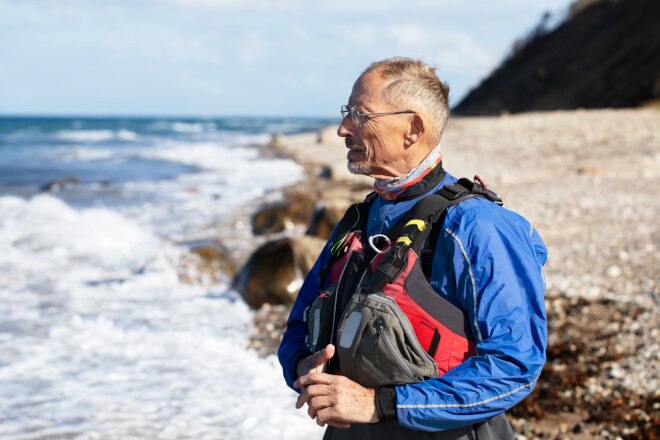Bjarne received compensation from Coloplast to provide this information. Each person’s situation is unique so your experience may not be the same.
In his work as a strategy and management adviser, Bjarne was always structured and forward-thinking, and he’s found that this has helped him transition to life as a urostomy user.
“People say the world moves so quickly that it doesn’t make sense to plan ahead. But a plan can help you shape your future. Then you’re always free to change it as you go” says Bjarne. And he did.

A major change of plans
For most of his life, Bjarne always made sure to have time for three 10 to 14 day trips every year: a sea-kayaking trip, a hiking trip, and a cross-country skiing trip – preferably alone and in areas with as little civilisation as possible. Primitive trips where he carries everything he needs for the trip. It was on one of these trips, in Norway in 2017, that he first noticed something was wrong with his bladder.
Back home, Bjarne went to the doctor thinking that he had cystitis, but after some tests, it turned out he had bladder cancer. Bjarne received various treatments but in late 2018 he was given a 40 percent chance of surviving the next five years if he didn’t have his bladder removed.
“Would I go to the casino and bet all of my savings if I had 40 percent chance of winning? It was that simple for me.”
“I started looking into what this ostomy business was. I talked to specialist nurses and doctors and searched online. Would I be able to sleep in my tiny tent with a night bag? How would I manage to carry a 26 kg backpack with the waist belt pressing down on my ostomy? What about changing my bag in the freezing mountains with the rain lashing down? What about sex?”

Making sure everything is all right inside as well as outside
Luckily for Bjarne, he loves fixing things – and in this case he needed to fix himself: “I needed to make sure that the new version of me would not limit what I loved to do.” He had surgery and followed his own regimented rehabilitation programme after the operation. He is disciplined and works hard on his training every day and he feels fitter now than he has in several years. And indeed, it didn’t take long before he was back on track.
Bjarne has worked out solutions to all the challenges he’s faced. He’s figured out how to fix his gear when he’s up in the mountains, how to change his bag under his poncho if it’s raining and he’s made a hole in his sleeping bag for the night bag. The biggest challenge was to develop a shield that could protect the ostomy from the hard pressure of the backpack waist belt. There was nothing like it before – but now Bjarne’s made sure there is.
All of that is work on the outside, however, and what really got Bjarne through things was getting the inside right - the mental part. Talking continuously to his family and his many friends and acquaintances about what he was going through was Bjarne’s own crisis psychology.
“Crisis psychology is all about talking and putting your feelings into words. Telling my story over and over again and showing people my ostomy has helped me normalise things and make it all undramatic. When you’re open you get responses or ideas to better manage your new way of life. Of course I can still have a bad day, but I’ve learned to work around it.”
Back to the life he used to live – with small changes
Now Bjarne is able to do all the things he used to do. He goes kayaking, mountain hiking in summer and winter, and he teaches stand-up paddling and sea kayaking. One thing has changed a bit, however: his sex life.
“Removing the bladder and the prostate damages the nerves that facilitate erection. Luckily, medical science has also provided a solution here. It does take away some of the spontaneity, but it works.”

Fortunately, Bjarne has nature to reenergise him when the challenges of his new life get him down.
“People ask me why I like being out in nature in primitive conditions so much. I can’t help it! I feel like I am one with nature. There is no feeling like moving through the changing landscape, finding the perfect spot to set up your tent and finding a stream with the most amazing water.”
But what if something goes wrong while he is away alone? His response is simply that he is careful and trained – and thereby able to minimise risks. He acknowledges that risks will always be part of his trips, but in his home office a heart attack or stroke could also occur suddenly.
“The inherent risks in being alone in remote places is also part of what makes you be present and cautious. There is something meditative about it. You’ve always got to be aware of what you do and what’s going on around you. Otherwise you risk seriously hurting yourself – with the worst case being death. Perhaps you will be able to activate your emergency beacon – perhaps not. However, without these trips I might wither away. I’m glad that despite my ostomy I can carry on my activities. And by the way, I have never had problems with my daily ostomy in itself or with the products I use.”

